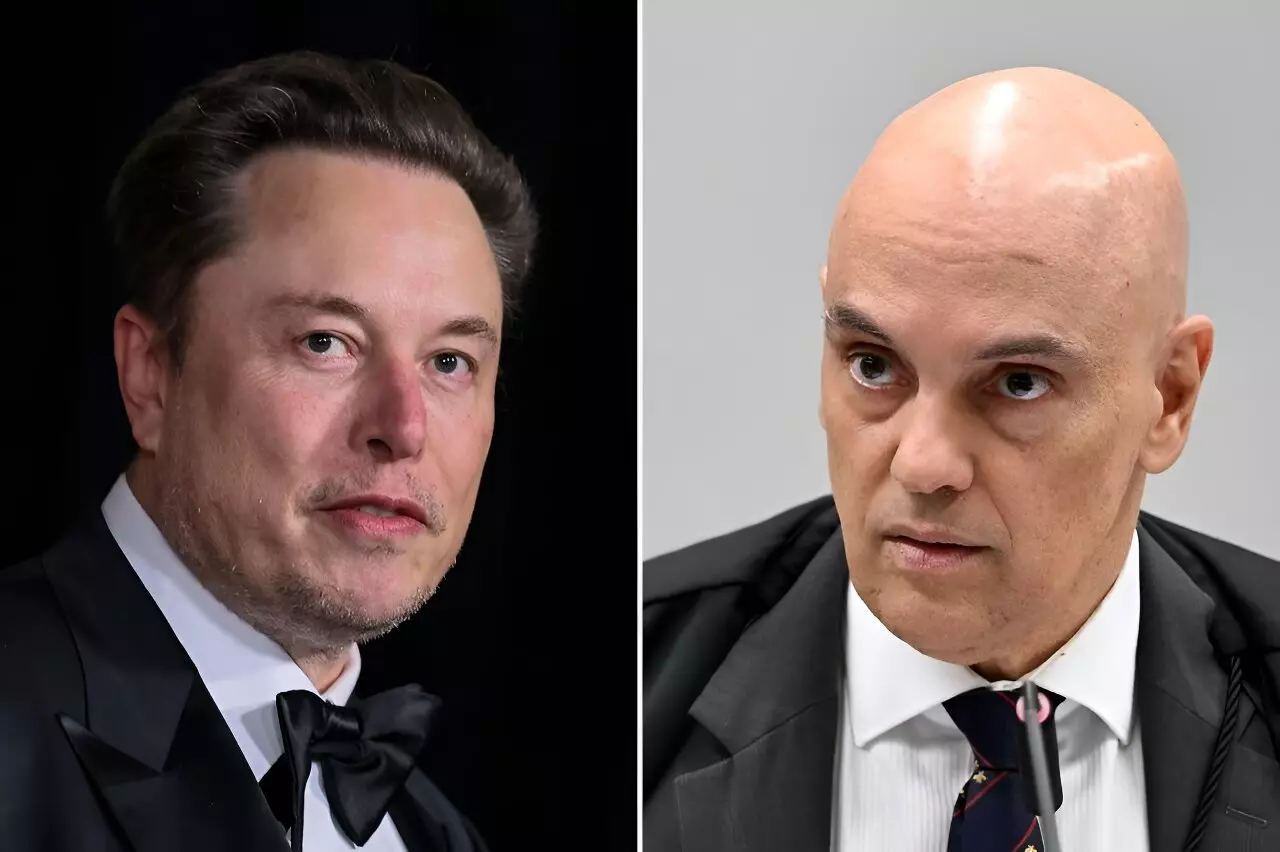The ongoing conflict between the social media platform X and Brazilian authorities has transformed into a significant legal saga that highlights profound questions about freedom of expression and corporate governance. Following a recent ruling by Brazilian Supreme Court Justice Alexandre de Moraes, X has been forced to navigate a complex legal terrain in order to resume its operations in Brazil, where it once boasted a user base of over 22 million people. This situation has not only reignited debates around misinformation but also intensified scrutiny on how social media platforms operate within national jurisdictions.
In a decisive move, Justice Moraes stated that X had failed to fulfill all legal requirements necessitated to overturn its suspension. X has been given a narrow window of five days to rectify its standing by submitting additional requisite documents. This ruling stems from a history marked by Musk’s controversial management style and his refusal to comply with previous court orders aimed at curbing the spread of what was deemed false information on the platform. The implications of this ruling extend beyond mere operational hurdles; it raises the question of how accountable tech giants should be in terms of content moderation and adherence to local laws.
The clash between Justice Moraes and Elon Musk is emblematic of the broader battle between regulatory bodies and tech entrepreneurs. While Musk has painted Moraes as an “evil dictator” reminiscent of fictional tyrants, the judge remains steadfast in his belief that X’s operation poses a tangible threat to Brazilian democracy. The court’s decision has found support among Brazil’s political left, including those aligned with President Luiz Inacio Lula da Silva, whereas the right-wing factions see it as an attack on free speech. Such polarized perspectives underscore the complicated nature of governance in the age of digital communication.
The ramifications of this legal battle are substantial, with Moraes imposing financial penalties on X, including a notable fine of five million reals (approximately $913,000) for disregarding the suspension order. Furthermore, the judge has taken extralegal steps to freeze assets linked to Musk’s satellite internet venture, Starlink, to ensure compliance with the imposed sanctions. Such measures not only reinforce the court’s authority but also signal a potential precedent for how countries might confront disinformation in the digital age.
As the legal dust settles, it remains to be seen how X will adapt its strategies to comply with Brazilian law while maintaining a platform for free expression. The outcome of this ongoing tussle could very well shape the future interactions between governments and social media enterprises globally. With both sides entrenched in their opposing views, the resolution of this dispute will serve as a critical benchmark for accountability, illustrating the increasingly intricate relationship between technology, governance, and the right to disseminate information.

